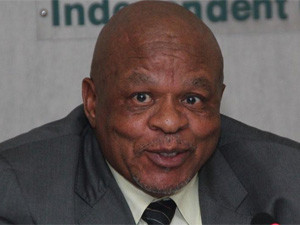
Pressure is mounting on countries in the Southern African Development Community (SADC) to move off analogue television to a digital platform as the 17 June switch-over deadline looms.
However, the region still faces several challenges, including ensuring the switchover does not cause interference with border countries, and migrating television channels to free up more spectrum. This was the message at a conference coordinated by the Southern African Digital Broadcasting Association (Sadiba) this morning.
Addressing delegates, Independent Communications Authority of SA (ICASA) chairman Stephen Mncube said all stakeholders need to take cognisance of the "looming" deadline. The International Telecommunication Union will cease to protect analogue broadcast from 17 June, although SA has already admitted it will not make this deadline. "The region should begin the countdown to 17 June," said Mncube.
Tebogo Leshope, Sentech's head of network engineering, added "we have to fast-track" migration, but this must be done in a pragmatic manner.
Challenges ahead
The urgency to migrate comes as etv has filed papers in the North Gauteng High Court to have aspects of the Broadcasting Digital Migration policy amended. The Universal Service and Access Agency of SA has also asked bidders for subsidised boxes to provide more information on their tenders. Both moves will push out migration.
Simon Kekana, digital terrestrial television project manager with the SADC secretariat, noted five countries, including Namibia, Malawi, Zambia and Mauritius, are operating digital networks, while SA is still at dual-illumination stage. He added seven states are still procuring and installing equipment, and two are running trials.
Mncube noted switching on digital television will bring with it a "revolution" for broadcasting because of the superior technology and ability to offer interactive channels. However, he pointed out that a range of issues need to be considered by all stakeholders.
Planning for the future
Once migration has been achieved, said Mncube, the authority would consider licensing new telecoms players, as well as expanding spectrum offered to incumbent mobile operators. Broadcasters are keen to get their hands on the spectrum that will be released because it will allow them to offer additional channels and services, while mobile operators want the additional frequency to roll out high-speed broadband.
Stakeholders must not be inclined to protect their "turf", but to rather act in a way that will benefit future generations, cautioned Mncube. "Don't sell our country when we are trying to move from analogue to digital."
Sadiba deputy chairman Gerhard Petrick added there would be no quick digital dividend release, as 376 TV channels need to be reassigned.
Leshope said Sentech recommends a phased approach to migration. This would see the Northern Cape turn off analogue signal first, followed by Limpopo and border regions - to mitigate interference - and then Mpumalanga, the North West province, Free State, Eastern Cape, KwaZulu-Natal, before turning off in Western Cape and Gauteng.
Leshope said this would allow the country to deal with challenges from province to province, although timelines would still need to be set, and the stages could change. The Department of Communications has indicated SA will only complete migration in two years' time.
Kekana said the region faces several challenges, including getting more content to drive audience buy-in, without which migration would not succeed. He added other issues include ensuring no cross-border interference, or interference between broadcasting and mobile services during migration, as well as policy issues, and funding.
The SADC is involved in other aspects as well, such as investigating freeing up some additional spectrum for WiFi or interactive TV services, and creating a bouquet of regional content, noted Kekana.
Share